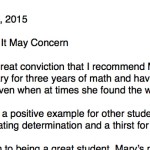The numerous links at the bottom of this post are just a few of the MANY articles and advice regarding what parents can teach their kids about money. Even if you have diligently taught your kids about money, you can find some good advice in these and many other articles. If you haven’t been teaching your kids about money, maybe these articles will get you started. If your parents haven’t taught you about money, please read on.
Financial Literacy
Champlain College’s Center for Financial Literacy, using national data, has graded all 50 states and the District of Columbia (D.C.) on their efforts to produce financially literate high school graduates. Amazingly, 26 states received grades of C, D or F; 29% had grades of D or F.
The first thing I find interesting about this study is that we are grading whether High Schools are doing a good job of teaching financial literacy. I believe that financial literacy is one of the most important life skills, so supplementing the financial awareness lessons learned at home in the classroom is a great idea. But I worry that High Schools aren’t always supplementing, but actually teaching basic financial literacy skills that aren’t being adequately addressed in student’s homes.
 The second thing I find interesting is that a lot of States are failing at this task. This confirms my strong belief that financial awareness must be fully taught at home. Even a 6 year old can be taught something about saving money. Here are a few examples of how my husband and I have taught financial literacy at home:
The second thing I find interesting is that a lot of States are failing at this task. This confirms my strong belief that financial awareness must be fully taught at home. Even a 6 year old can be taught something about saving money. Here are a few examples of how my husband and I have taught financial literacy at home:
- One of the first lessons we taught our kids is that there are people in life who have money, and their are people in life who spend money like they have money. We stressed that often the people with the most money are the least likely to spend it on frivolous things. I remember one of my daughters coming home from elementary school saying she was pretty sure we were one of the poorer families at her school. That was most definitely not the case, so I was curious as to how she made that assumption. She said, “They have nice cars, go on big trips and they have lots of cool gear like Xboxes.” I understand that because we are in the enviable position of having enough disposable income, we get to pick and choose how we treat our kids to the child-luxuries of life (as in, the things they consider important). I also completely relate to families who can’t afford a lot of things wanting to treat family members to small luxuries, to make up for not being able to do all the things families with more money can choose to do. I grew up in a large family without a lot of money to spare and understand the dynamic.
- We regularly talked to our kids about ways we save money on expenditures, whether it’s buying an item in bulk to get it for a better price, finding coupons, waiting for a sale, or just plain waiting. Do I need a new pair of tennis shoes, a handbag or whatever, or can it wait? That doesn’t mean we didn’t splurge, but we make a conscious decision to splurge ON OCCASION. For example, we live in a small town without a lot of shopping. That means that sometimes finding the right item when we were in a larger town meant we didn’t have the option of waiting for the sale, we just needed to get the item when we found it. When we did not making smart budget-wise decisions, we try to discuss our reasoning to our kids.
-

How do you negotiate purchasing the luxuries of life?
Whenever my kids asked me whether we could buy something, whether it was a box of cereal at the grocery store, or a new sweater at the mall, my first question was always, “How much does it cost?”. It amazed me how long it took them to figure out they should know the answer to that question before they asked. It’s not a matter of whether we can afford that particular item (fortunately, they were often asking for something that didn’t cost a lot). By asking the about the price, I am asking whether they have considered whether it is a good value; for example is there a similar item for less cost, or maybe a better quality item that will last longer for a similar price? As they grew older, they were much better at saying “Can I get this dress? It’s on sale for $xx, which is a lot less than the dresses I saw at the other store. I think it would be great for the wedding we are going to next week.” The answer was more likely to be yes, because they demonstrated that they were being thoughtful about this expenditure.
- One way we save money on a daily basis is rarely eating out. Yes, it’s time consuming to plan, purchase, prepare and clean up after each meal, but it’s also MUCH less expensive and MUCH healthier.
-

People are usually more careful with their own money
Saving for something special was another important life skill we tried to teach our kids. We did buy them each a smart phone and paid for their data and cell plans. But we chose to buy the plan that allowed 2 GB per phone – if they went over that 2GB of data allowance, they had to pay for the overage. If they cracked the screen, they had to decide whether to pay to replace the screen or save up for a replacement phone.
One of our daughters wanted an iPad, which we definitely considered a luxury item. She saved most of her allowance for over 6 months, worked in our yard, being paid “a penny a weed”. Saving enough for an iPad was still a struggle, so we gave her cash as a birthday gift, giving a little more than we normally would, indicating that we were trying to match her efforts to help her attain her goal. When she had enough for that Ipad, she was much more thrilled with her purchase than if we had just bought her an iPad for her birthday. We hope that she applies that same financial constraint and work ethic when she buys her first car, rather than taking out a loan that she pays back over 5 years.
- We all set our own financial priorities, and things we consider essential others might think is an unnecessary luxury. My advice is to make sure you are being thoughtful, and consider how your actions demonstrate your values much more distinctly than what you tell your kids about money.
 Why Allowances Are a Good Idea
Why Allowances Are a Good Idea
After demonstrating to our kids through our own actions what we do to save money, we needed them to start setting their own budgets and learning how to live within those budgets. That’s why allowances make sense. I had no allowance (and was given no spending money) when I was a kid, and thought it would be smart to do the same for my kids. Then I read an article about how the best way for your kids to learn how to manage their money is to start at a young age. The only way that I could think of to make that work was to give them an allowance.
Here’s how we started: beginning in 1st grade, they received a weekly allowance of 75 cents. BUT, a quarter was put in a box they decorated for College Savings, a quarter was put in a box they decorated for Long Term Savings, and a quarter was put in their piggy bank, for spending money. It didn’t take them long to realize that 25 cents didn’t buy much, so they were forced to save their piggy bank money for several weeks or even months before they could even think of using it to buy something. That might seem cruel, but the reality is that we were already buying everything for them – clothes, food and non-essentials. Each year on their birthday, their allowance was increased, but a third of the allowance went into each savings category. Once they had enough money, we deposited these funds into a bank account. Unforuntately, with very low interest rates, they didn’t get to see much growth in their savings, beyond what they were adding each week. Eventually, they had enough money saved they could choose to purchase a couple of stocks, if they wished.
Their allowance made a big jump when they started High School, because we told them that while we still bought the food they ate, the clothes they wear, their shampoo and other essentials, they now had to buy their own make-up, movie tickets, optional meals out (going out for ice cream with friends, for example) and other discretionary spending. We realized that as they gained more independence, going on outings with friends without us, there would be more occasions where they would have to make decisions regarding how they spent their money. We wanted those discretionary purchases to come from their own discretionary fund, rather than asking us to buy those non-essentials for them.
They quickly learned that between the ticket and concessions, going to a movie theatre was an expensive date night. Their compromise was to either bring in a box of candy to share they had bought for much less at the grocery store, or even better, to suggest to their date that they watch a movie at home via Netflix or video streaming. Sure, that meant I was providing the food, but I really preferred for them to be at our house, so I knew what they were up to. I was willing to take on the cost/effort of providing the food for them and their friends, which was my financial priority. Movie tickets also became a well-appreciate stocking stuffer. I find it interesting when families who I consider to have limited financial means regularly go out for movies. Again, maybe this was how they chose to treat their kids, or maybe movies are an important luxury for them, or possibly, they aren’t really thinking about the cost of that evening out.
Learning the Value of Money Through Work
Nothing teaches a teenager the value of money quicker than having a job. Busting their butt for hours and making minimum wage is a very quick lesson in finances. It is also a means to teach them that if they want to live off of more than the minimum wage, they needed to acquire more knowledge and skills, which means continuing their education beyond High School. If your kids are earning money through work, make sure that all of their wages don’t go to luxuries.

How do teenagers learn the value of money?
I had always planned on having my kids work when they were in High School, like I did. But between their school sports and other extracurriculars as well as a very rigorous academic workload, working during the school year, other than occasional home/pet/baby sitting, wasn’t an option. Likewise, the summers have not all resulted in regular jobs. We live in a small town with a fairly large University. The competition between College and High School students for summer jobs is fierce, which meant our decision to use summer time to be involved in enrichment and/or academic camps, travel and time with extended family, required flexibility. Employers did not need to accommodate our daughters’ summer schedule, as there was a long line of students behind them willing to work without any time constraints. So unless we have been able finagle an internship or other flexible job, my kids haven’t spent a ton of time working outside the house. I think in the long run, this will be a good decision, as their busy schedule has required them to learn strong time-management skills and their life experiences traveling, etc. make a well-rounded person. But in the short term, I wish they had spent more time working. I felt we had to be more creative and thoughtful in teaching our kids financial literacy because of our choices for how our family used the summer holidays.
How you choose to handle your student working will be customized to your situation. My only suggestion would be to avoid the extremes – don’t let your kids work so many hours their grades and social life (yes, that matters too) suffer, nor let them lay around after school all day with very little to do. We all know that teenagers with lots of free time is a recipe for disaster. I think most teenagers would admit that not having much to do isn’t really a good thing.
 It’s Never Too Late
It’s Never Too Late
I realize that most of you reading this website don’t have a toddler at home. But regardless of the age of your child when you begin to actively teach financial literacy, it’s never too late to have a big impact on your child’s ability to manage money. Even if this has not been a big topic of discussion in your home, as you are preparing to send your child off to College, you can have some great conversations regarding money management. I think it’s important to not have those conversations be about anxiety. If you are fearful about money, try to not convey that anxiety, express it more as a concern, and make the discussion constructive. There is a lot of stress on a new College student’s shoulders, dumping more stress on them as they arrive at College does not help them.
I found it difficult to ask other parents of College-aged students how they have arranged the College Budget – this can be a sensitive topic. I decided to break the ice here by sharing our College budget plan. If you are comfortable doing so, please post a comment sharing your family’s College budget plan.
|
Articles with Advice on Teaching Your Kids About Money:
http://life.familyeducation.com/money-and-kids/personal-finance/34481.html
http://money.cnn.com/pf/money-essentials-kids-financial-responsibility/index.html
https://kids.usa.gov/money/index.shtml
http://www.forbes.com/forbes/welcome/
http://money.usnews.com/money/personal-finance/articles/2012/09/13/fun-ways-to-teach-kids-about-money
http://payoffpilot.com/financial-tips-advice-students/ (Thanks to the Girl Scouts Troop who alerted me to this website!)
© Complete Systems, LLC dba Elligiblecollegestudent.com, All Rights Reserved
*** Elligiblecollegestudent.com is a division of Complete Systems, LLC ***
Disclaimer






 The second thing I find interesting is that a lot of States are failing at this task. This confirms my strong belief that financial awareness must be fully taught at home. Even a 6 year old can be taught something about saving money. Here are a few examples of how my husband and I have taught financial literacy at home:
The second thing I find interesting is that a lot of States are failing at this task. This confirms my strong belief that financial awareness must be fully taught at home. Even a 6 year old can be taught something about saving money. Here are a few examples of how my husband and I have taught financial literacy at home:
















